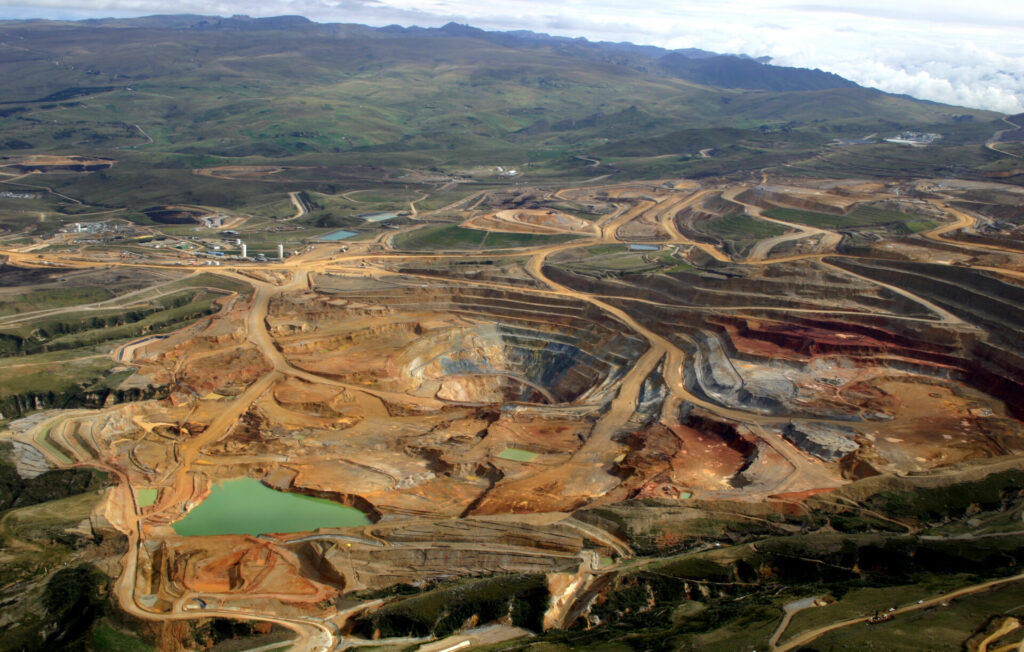Associate Professor Lars Buur, Department of Social Sciences and Business, Roskilde University, identifies two major challenges to Danish development research: First, research findings to be shared as knowledge support for Danish development cooperation is left with an ever-smaller audience, as specialized staff in DANIDA is cut back. Second, research capacity building in Global South countries is hampered by a lack of local funding for universities. Thus, South Ph.D. students being trained by Danish university partners have very limited options to continue their research and they become dependent instead of independent.
Lars Buur studied social anthropology and ethnography at Department of Anthropology, Aarhus University. By the mid-1990s, he went to South Africa to study the Truth and Reconciliation Commission in South Africa as part of a DANIDA funded Ph.D. project administered by Aarhus University and the Centre for Development Research in Copenhagen. Lars had developed a very clear idea about global circulating institutions such as truth (and reconciliation) commissions dealing with negotiated political transitions. Apartheid was present in South Africa, but it was also a Southern African phenomenon because it was pulling threads into the neighbouring states in political and military terms and all other sorts of ways, structuring their paths of development. The much researched South African democratic and political transition was therefore also a regional transition.
“My point of departure was that enclave, which the work of the Truth and Reconciliation Commission constituted. I was able to do fieldwork in a working Commission at an exciting point in time. This kind of institution gave rise to efforts to seek justice and reconciliation in new ways after crimes against humanity and genocides (such as Rwanda) – in new ways other than costly and cumbersome international criminal courts.”
“Subsequently, I worked for many years in Mozambique. I joined a research group at the Centre for Development Research (CDR) studying the field of tension between post-conflict situations, development, and various forms of resolving the past. In a post-doc project, I focused on the questions: What kind of transition evolves after a Truth Commission? How about justice? How are the judicial systems being reformed?” This involved fieldwork in South African townships on vigilante groups emanating from former contestants of apartheid, as well as fieldwork on the recognition of traditional leaders as community authorities in Mozambique together with Helene Kyed from Danish Institute for International Studies (DIIS).
“Following one and half years at Nordic Africa Institute as a coordinator for a research program on tax, I became a senior researcher at the Danish Institute for International Studies (DIIS) (formerly CDR). I was there for eight years, became the union representative, and was very much involved in the institutionalization of DIIS, as we know it today together with the then Director Nanna Hvidt.” At DIIS I came to form part of Ole Therkildsen´s research group on poverty and industrial policy working with Lindsay Whitfield (now at CBS) and Anne-Mette Kjær (Århus University).
“In 2014-15, I took up my present position at Roskilde University in the Department of Social Sciences and Business. In part this was because of the limited capacity of the Ministry of Foreign Affairs to make use of the many studies being completed at DIIS, fewer people working with aid and technical aspects of development cooperation meant that capacity was diminishing. What I as a joke called the BedriftSundhedsTjenesten (BST) which real name was Bistands Faglig Tjeneste (we are an old agricultural nation😊). Its section comprising professionals to support different types of technical assistance in development aid has over time being diluted. This makes real research uptake difficult. DIIS (then as now) still had a lot of research opportunities, but the resonance to what we were doing became weaker and weaker. There was nobody to receive to take in and make use of our findings. I, therefore, decided to move to RUC educating development and globally interested students while still doing policy and research work – it many ways more work but also more satisfying work, as youthful energy is difficult to match.”
Development studies 2.0
How do you envisage a future structure of development research in Denmark? – What is your view about the call by Maria Eriksson-Baaz, University of Uppsala, to abandon development studies, except for a critical focus on the aid industry, and then globalize all other disciplines?
“We have indeed looked into the aid industry for the past 20-30 years. That is nothing new. If that is the only area to study, it turns into pure narcissism. In spite of the SDGs and larger narratives, an incredibly unequal world order persists. Many of the countries, the natural resources of which are needed in the climate transition, remain very poor, and they are just as dependent on their raw materials as ever, according to the latest UNCTAD studies. Thus, there is a lot to study going far beyond ‘development’ or the ‘aid industry’. This is where I disagree with Maria.”
“Maria’s second point is interesting; we need to move away from development studies and include development in many different disciplines. Questions about climate change, war, migration and the SDGs cannot be studied from the perspective of a single discipline. One strength of development research and global studies in general is the cross disciplinary perspective with significant scope for the discipline. Several new educational and research programs have emerged, such as Human Security at Aarhus University, Global Development at University of Copenhagen, and Global and Development Studies at Roskilde University. At Aalborg University, Global Refugee Studies represents the effort to educate students for jobs within the new development agenda.”
“We are watching the old disciplines which were ‘traditionally’ run as development studies starting to disappear. Maybe, we did not see it coming that fast. Ten years ago, University of Gothenburg in Sweden dropped development studies and renamed it Global Studies; in real terms it is a mix, although the silos continued at Gothenburg University. In Denmark, we try to make some new programs by combinations I think we in the next five years will see genuine change. At the same time, there is a high demand for technical knowledge, not necessarily cross-disciplinary studies, rather a high degree of specialization and technical know-how. How to reconcile this in the new studies emerging such as Global and Development Studies and Socio-Economics at RUC and how Human Security (AAU) and Global Development (KU) evolve over the next decade is still to be seen”
Lack of local funding for continued research capacity building
One element in Maria’s argument is the research capacity being built in Global South. The need for development studies in Denmark and elsewhere will diminish over time. At the same time, a whole range of very specific competences goes global, as all sorts of public institutions are being involved in development cooperation, from the Department of Statistics to the Traffic Authorities. The inter-disciplinary, very competent development researcher may take the backseat to the hands-on skills put to use in aid interventions.
“It is true that our way of doing projects targets substantial research capacity building. However, if capacity is left to itself, it is drowned in teaching and does not initiate new research areas. Norway, Denmark and Sweden have educated many PhDs, but they remain in an incredibly weak position in their university systems, The need to continue the research networks being built is enormous. Not much money is being spent locally in the South, by South governments. Capacity is being built, but what do we do after that?”
“What often happens with South driven projects, is that North partners write the application, which is then submitted on behalf of the South partners, who formally manage the research grant. But the real capacity is somewhere else. A change of power relations to allow research questions to be defined in the South will only happen, when local governments provide funding for research in the South with the partners South institutions want to work with. This is not where we are now – we are far from this scenario.”
“In the CASH-IN project, we have established two research groups at Dodomo University, Tanzania, and Makere University, Uganda, and appointed five PhD students. We read and write together. The technology is moving very fast, as cash transfers are being combined with financial instruments. There is potentially a link to Morten Broberg, professor in Development Law at University of Copenhagen, and to Amanda Hammer, Head of Centre for African Studies, University of Copenhagen, who is doing research on certification of citizenship documents. I think it is promising.”
Research policy at cross roads
How do you compare DANIDA funding facility and that of Independent Research Denmark?
“Independent Research Denmark does include an Innovation facility, in which funds are allocated to very specific research problems. Whether it is a good idea to maintain a separate DANIDA facility, I cannot answer yes or no. In Sweden, SIDA funds have been integrated into the Swedish Research Council, one argument being the lack of transparency of the SIDA funding. In DANIDA, the research priorities, with which you may agree or disagree, are fully transparent in the sense we know what they are. The funding is strategic, e.g., when focusing on climate change and health this is clear. One can discuss the formulation of the topics or strategic focus areas – but the process is transparent, clear, sequenced, and competitive. It is actual research funding as, once a project has been awarded a grant, DANIDA does not interfere in e.g., re-phrasing of research questions, unlike Department for International Development (DFID) in UK (now: Foreign, Commonwealth & Development Office) that every year can change questions, focus areas, and countries.”
You mentioned that there is little staff left in DANIDA to receive knowledge generated from new research.
“Yes, the very small group left in the Section of Evaluation in DANIDA (or whatever the most recent name is) is a major problem. The same goes for the few staff in Danish embassies in South countries. On the other hand, more research-based knowledge is now transmitted via global institutions, although they may be more wary and difficult to penetrate.”
Looking at Department of Statistics working with Vietnam to define indicators for their reporting on national SDG performance…
“Well, I do not doubt that at some point these aid activities will be pulled from the Ministry of Foreign Affairs to form something across and involving more ministries. DANIDA used to be a major organisation; today, most of the aid funds are channelled via other systems. And it would make just as much sense to have the Ministry of Climate and other ministries involved. However, as administered by a research council, the option of targeting political priorities would disappear. Anyhow, that is making less sense, as the number of DANIDA priority countries shrinks; next year the embassy in Tanzania closes.”
Next: Paradox of green extractivism
Which are the plans for future research?
We are finalizing the project Hierarchies of Rights on major investments in gas, oil. coal. agriculture, rice, and sugar. The focus on green transition may obscure the fact that extractivism now hits even harder. To make lithium you need 10-20 different minerals. Some of the old minerals suddenly have a renaissance. The boom creates dependence and lock-in for developing economies. Green extractivism implies (unfortunately often) shutting down civil society, as the regimes having access to ‘hot’ natural resources no longer need their citizens. There is also the possibility that we explore how and if social cash transfers could provide a way of directing gains from a mineral tax on the extraction to the citizens, and not to the elite for buying weaponry and ‘security’. This would link to the Danida funded CASH-IN project. In other words, the research can be taken forward in new ways that could converge.













